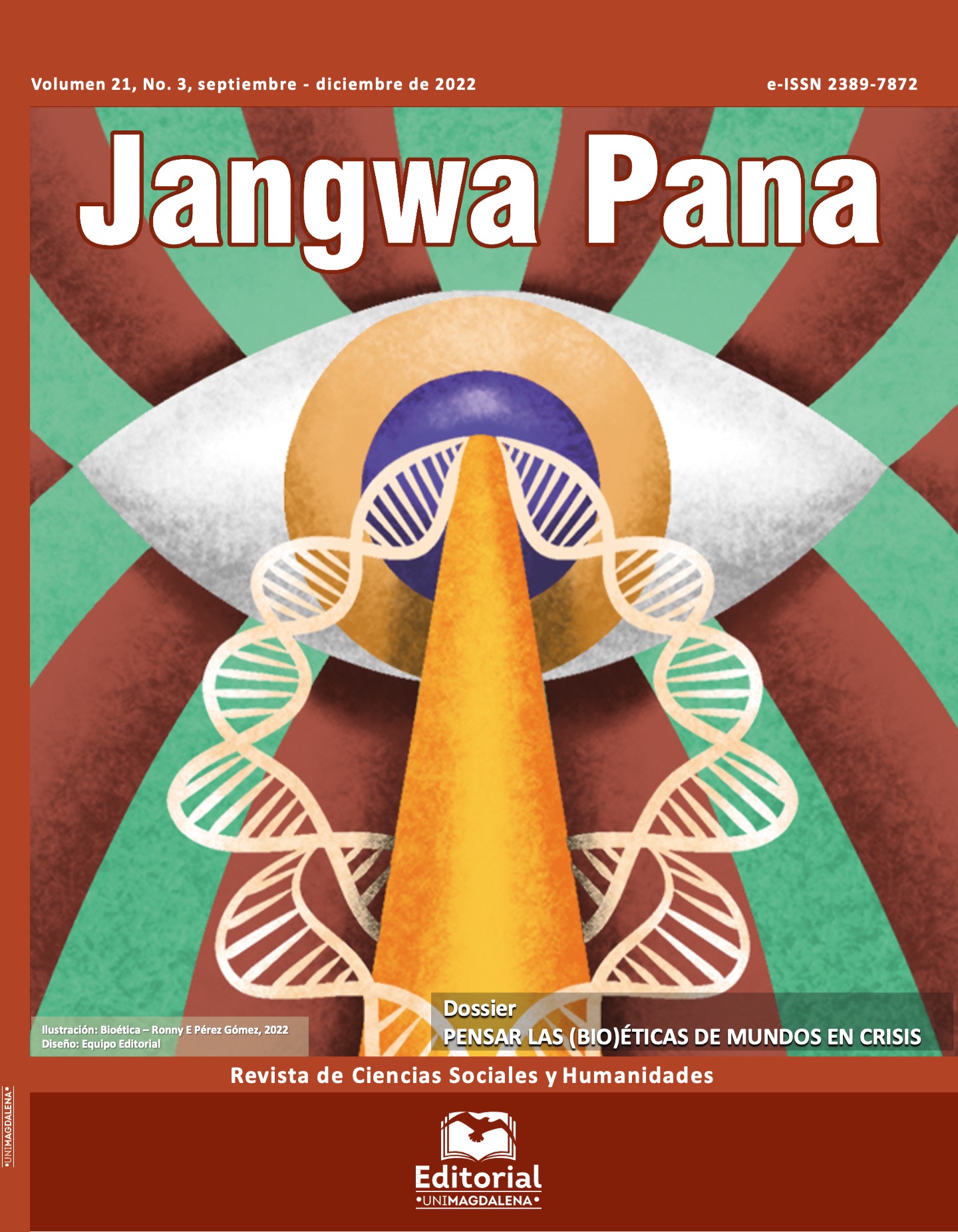Labor Automation: A Phenomenological and Historical Perspective
Main Article Content
Abstract
Downloads
Article Details
References
Abufhele Milad, I. A. (2021). Habilidades socioemocionales y brecha de género en educación. https://repositorio.uchile.cl/handle/2250/181503
Agudelo, N., Tano, G. y Vargas, C. A. (s. f.). Historia de la automatización. Universidad ECCI.
Bauman, Z. (2017). Retrotopía. Paidós Estado y Sociedad.
Berzal, J. (2020). La Tranvaloración de Todos los Valores. Ediciones Doce Calles.
Datareportal. (2022). Global overview report: Digital 2022. Datareportal. https://datareportal.com/about
Drucker, P. (1994). La sociedad postcapitalista. Norma S. A.
Fazio, A. (2018). La automatización contemporánea y el ideal velado del tiempo libre. Nómada, 48, 33-47.
Ford, M. (2016). El Auge de los Robots: La Tecnología y la Amenaza de un Futuro sin Empleo. Paidós.
García, J. (2021). La deconstrucción de la humanización: hacia la dignificación del cuidado de la salud. Cultura de los cuidados, [S.l.], n. 60, p. 19-32, jul. 2021. ISSN 1699-6003. Disponible en: doi:https://doi.org/10.14198/cuid.2021.60.03.
Galindo, J. (2015). El Concepto de Riesgo en las Teorías de Ulrich Beck y Niklas Luhmann. Acta Sociológica, 67, 141-164. https://doi.org/10.1016/j.acso.2015.03.005
Han, H. (2012). La Sociedad del Cansancio (2da ed.). Herder.
Harari, Y. (2011). De animales a dioses. Debate.
Heidegger, M. (1993). La pregunta por la técnica (Francisco Soler, Trad.; Segunda Edición). Ciencia y Técnica, Editorial Universitaria.
Heidegger, M. (2018). Ser y tiempo (J. E. Rivera, Trad.; 3a ed.). TROTTA.
Jonas, H. (1995). El principio de Responsabilidad: Ensayo de una ética para la civilización tecnológica (2da edición). Herder.
Kuhn, T. S. (1989). ¿Qué son las revoluciones científicas? Y otros ensayos. Paidós / I.C.E. - U.A.B.
Mitcham, C. (2005). De la tecnología a la ética: Experiencias del siglo veinte, posibilidades del siglo veintiuno. Revista CTS, 2(5), 167-176.
Organización Internacional del Trabajo. (2015). Base de Datos de los Indicadores Claves del Mercado de Trabajo.
Ostrom, E. (2009). A General Framework for Analyzing Sustainability of Social-Ecological Systems. Science, 325(5939), 419-422. https://doi.org/10.1126/science.1172133
Otárola, M. (2019). Las habilidades sociales y su diferencia con el género de las profesoras y profesores de las instituciones educativas del distrito de la Molina, 2019. Repositorio Institucional - UCV. https://repositorio.ucv.edu.pe/handle/20.500.12692/35449
Paéz, J. (2002). Siendo solo un destinar. La esencia de la técnica moderna: una reflexión actual. Universidad de Chile. Disponible en: https://repositorio.uchile.cl/handle/2250/108772
Piketty, T. (2013). El Capital en el Siglo XXI. Paidós.
Pinker, S. (2019). En defensa de la ilustración: Por la razón, la ciencia, el humanismo y el progreso (H. Lazcano, Trad.). Paidós.
Reynolds, L. y Szerszynski, B. (2012). Neoliberalism and Technoscience. Critical Assesments. (L. Pellizzoni y M. Ylönen, Eds.). Ashgate.
Saint - Exupéry, A. (1943). El Principito. Éditions Gallimard.
Schwartz, R. A. y Holowczak, R. D. (2008). Automation. En V. Parrillo, Encyclopedia of Social Problems. SAGE Publications, Inc. https://doi.org/10.4135/9781412963930.n37
Uribe, J. C. G. (2021). Trascender la humanización del cuidado: El reto de la enfermería del siglo XXI. CES Enfermería, 2(1), 1-3. https://revistas.ces.edu.co/index.php/enfermeria/article/view/625
Vera-Baceta, M.-Á. y Gómez-Hernández, J.-A. (2021). Espacios de ciudadanía digital en las bibliotecas públicas: Una propuesta para su integración en el marco del Plan nacional de competencias digitales. Anuario ThinkEPI, e15b02. https://doi.org/10.3145/thinkepi.2021.e15b02.
Zuboff, S. y Santos Mosquera, A. (2020). La era del capitalismo de la vigilancia: La lucha por un futuro humano frente a las nuevas fronteras del poder. Paidós.

